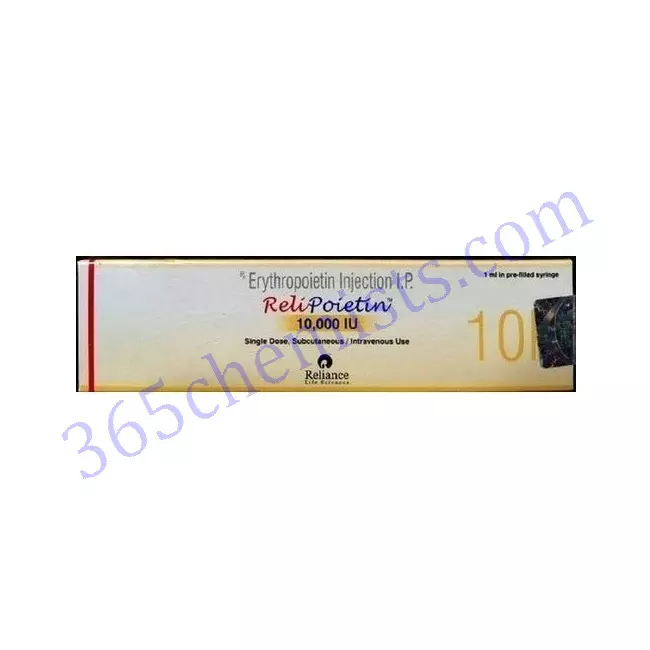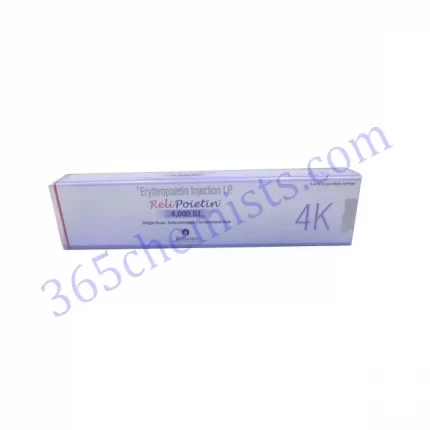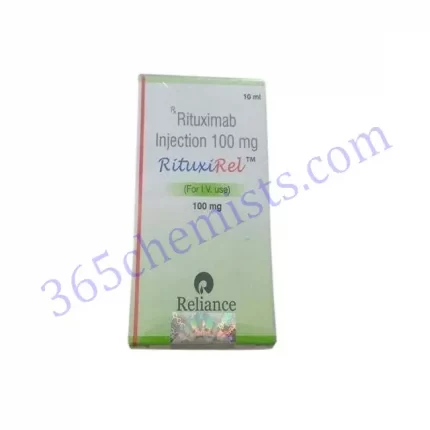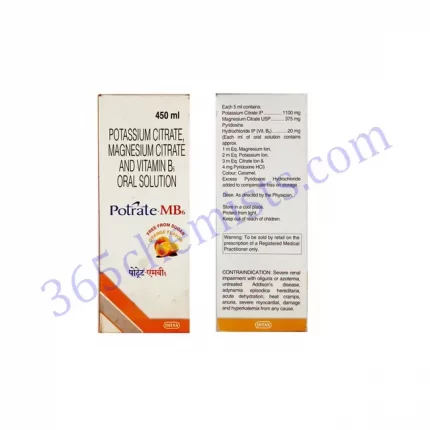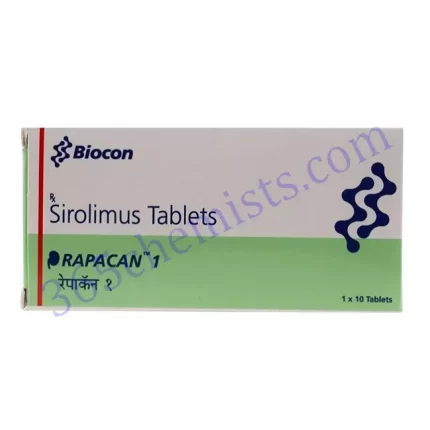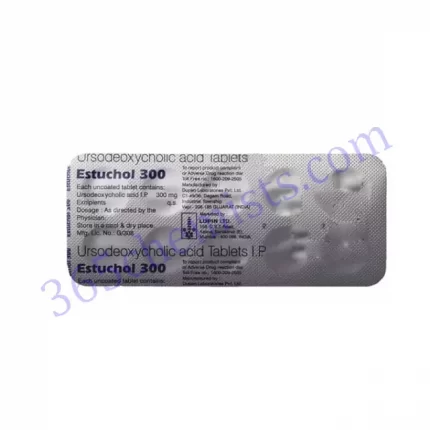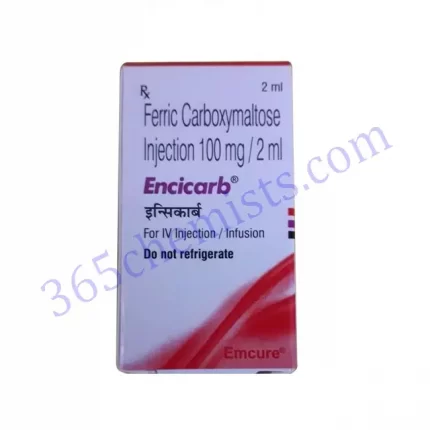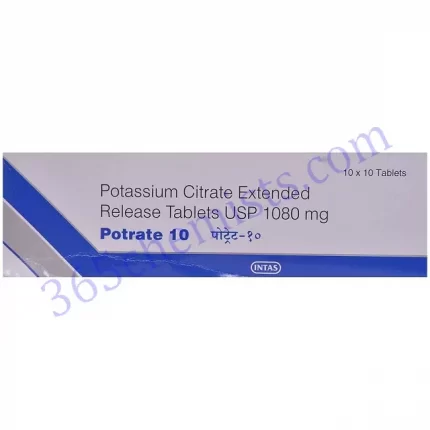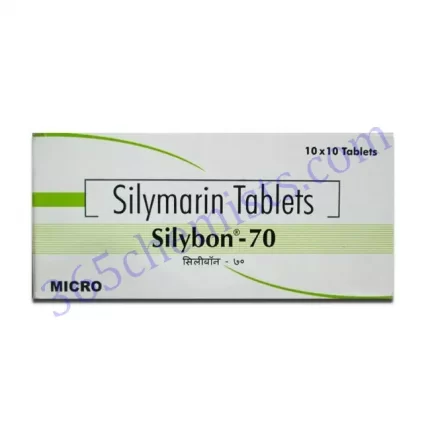Relipoietin 10000IU Injection: An Effective Treatment for Anemia
It is the recombinant erythropoietin that serves as the active component in the pharmaceutical formulation known as Relipoietin 10000IU Injection. Its most common application is for the treatment of anaemia brought on by chronic kidney disease (CKD), chemotherapy, and certain other conditions. Because it encourages the production of red blood cells in the bone marrow, relipoietin can assist in the treatment of anaemia and contribute to an overall improvement in health.
Understanding Recombinant Erythropoietin
Erythropoietin is a hormone that is naturally produced by the kidneys, and a synthetic form of the hormone known as recombinant erythropoietin has been created. Erythropoietin is an important factor in the process of stimulating the production of red blood cells, which are responsible for transporting oxygen to the various organs and tissues of the body. The production of erythropoietin can be impaired, which can lead to anaemia, in patients who have chronic kidney disease or who are undergoing chemotherapy. The capacity of the body to produce red blood cells can be improved through the use of recombinant erythropoietin that is delivered intravenously in the form of relipoietin 10000IU Injection.
Indications and Usage
In patients with chronic kidney disease who are not receiving dialysis or erythropoietin-stimulating agents, the administration of relipoietin 10000IU injection has been shown to be effective in the treatment of anaemia. Additionally, patients undergoing chemotherapy who have anaemia are given this medication in order to treat their condition with it. In addition, Relipoietin may be prescribed for anaemia caused by zidovudine therapy in HIV-infected patients, and it may also be used to lessen the need for allogeneic red blood cell transfusions in patients who are scheduled to undergo elective surgery that does not involve the cardiovascular system or blood vessels.
Dosage and Administration
A healthcare professional will base the dosage of Relipoietin 10000IU Injection on the patient’s weight, haemoglobin level, and response to treatment. Other factors that may be considered include how well the patient tolerates the medication. Injections either under the skin (subcutaneous) or into a vein (intravenous) are how it is given to patients, depending on the instructions of the medical professional. It is possible for the frequency of administration and dosage to change depending on the specific needs of the individual as well as the condition that is being treated. It is imperative that the directions for administration and dosage that have been provided by a medical professional be adhered to in an exacting manner.
Related Product
Relipoietin 4000IU Injection
Relipoietin 10000IU Injection
Precautions and Warnings
It is important to inform the healthcare professional about any existing medical conditions, allergies, or medications being taken prior to beginning treatment with Relipoietin 10000IU Injection. Patients who have uncontrolled hypertension, pure red cell aplasia, or a history of seizure disorders are at increased risk for adverse reactions when receiving relipoietin treatment. During treatment, it is necessary to perform routine monitoring of the patient’s haemoglobin levels, blood pressure, and iron status. It is not recommended to use relipoietin for the treatment of anaemia brought on by causes other than CKD or chemotherapy.
Adverse Effects
In most cases, the Relipoietin 10000IU Injection is well tolerated, and adverse effects are extremely uncommon. Nevertheless, there is a possibility that some patients will experience unwanted side effects, such as headaches, nausea, vomiting, or reactions at the injection site. These adverse effects are typically mild in nature and short-lived. It is imperative to seek immediate medical attention in the event that any adverse effects, especially those that are severe or persistent, are experienced.
Drug Interactions
It is possible for Relipoietin 10000IU Injection to interact with other medications, which could result in a change in the way those medications work or an increase in the likelihood that they will cause adverse effects. It is essential to keep the healthcare professional informed about any and all medications that are being taken, including over-the-counter medications, herbal supplements, and vitamin and mineral supplements. It is possible for relipoietin to interact negatively with other medications, particularly those that influence blood pressure or the production of red blood cells. The healthcare provider will evaluate the potential for interactions between the medications and then make any necessary adjustments to the treatment plan.
Conclusion
Anaemia caused by chronic kidney disease, chemotherapy, and certain other medical conditions can be treated effectively with the medication Relipoietin 10000IU Injection, which contains recombinant erythropoietin. This medication has proven to be very useful in the treatment of anaemia. Relipoietin helps alleviate anaemia, improve symptoms, and enhance the overall quality of life for individuals who are affected by it. It does this by stimulating the production of red blood cells. During treatment, it is essential to ensure that the prescribed dosage is adhered to, that all precautions and warnings are taken seriously, and that regular contact is maintained with a qualified medical professional. In order to achieve the best possible therapeutic results and reduce the likelihood of unwanted side effects, it is necessary to perform routine monitoring of blood pressure, haemoglobin levels, and iron status. In the event that you have any concerns or questions, please do not be reluctant to speak with a healthcare professional for additional direction.

